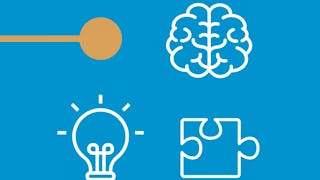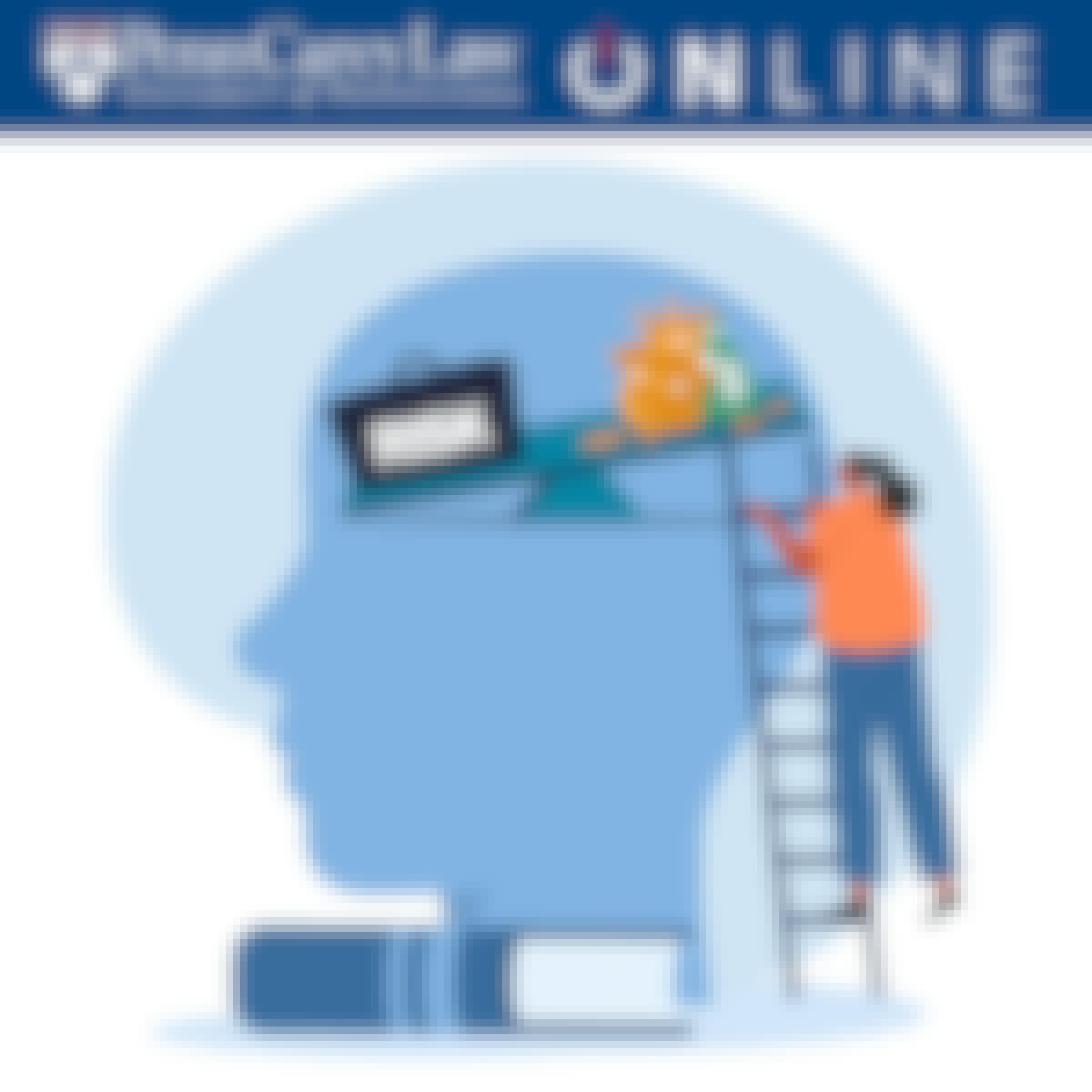Filter by
SubjectRequired
LanguageRequired
The language used throughout the course, in both instruction and assessments.
Learning ProductRequired
LevelRequired
DurationRequired
SkillsRequired
SubtitlesRequired
EducatorRequired
Explore the Cognitive Bias Course Catalog
 Status: Free Trial
Status: Free TrialCoursera Instructor Network
Skills you'll gain: Workplace inclusivity, Diversity and Inclusion, Self-Awareness, Decision Making, Cultural Diversity, Culture, Empathy
 Status: Free Trial
Status: Free TrialDeep Teaching Solutions
Skills you'll gain: Deductive Reasoning, Cognitive flexibility, Logical Reasoning, Critical Thinking, Curiosity, Decision Making, Problem Solving, Analytical Skills, Case Studies, Emotional Intelligence, Creative Thinking, Independent Thinking, Open Mindset, Complex Problem Solving, Lifelong Learning, Growth Mindedness, ChatGPT, Willingness To Learn, Systems Thinking, Strategic Thinking
 Status: NewStatus: Preview
Status: NewStatus: PreviewIE Business School
Skills you'll gain: Critical Thinking, Logical Reasoning, Analytical Skills, Decision Making, Research, Generative AI, Systems Thinking, Cognitive flexibility, Open Mindset, Data Analysis, Lifelong Learning
 Status: Preview
Status: PreviewIE Business School
Skills you'll gain: Intelligence Collection and Analysis, Strategic Thinking, Competitive Intelligence, Critical Thinking, Analysis, Business Intelligence, Digital Transformation, Timelines, Decision Making, Stakeholder Analysis, Business Technologies, Business Strategy, Complex Problem Solving, International Relations, Forecasting, Artificial Intelligence
 Status: NewStatus: Free Trial
Status: NewStatus: Free TrialUniversity of Cambridge
Skills you'll gain: Childhood Education and Development, Human Learning, Child Development, Psychology, Teaching, Decision Making, Learning Theory, Instructional Strategies, Learning Strategies, Empathy, Neurology, Magnetic Resonance Imaging, Disabilities, Autism Spectrum Disorders, Medical Imaging, Special Education, Electrophysiology, Differentiated Instruction, Human Development, Non-Verbal Communication
 Status: NewStatus: Free Trial
Status: NewStatus: Free TrialSkills you'll gain: Problem Solving, Vocabulary, Logical Reasoning, Critical Thinking, Data Literacy, Decision Making, Deductive Reasoning, Data Analysis, Analytical Skills, Grammar, Arithmetic, English Language, Case Studies, Complex Problem Solving, Literacy, Learning Strategies, Data-Driven Decision-Making, Verbal Communication Skills, Quantitative Research, Applied Mathematics
What brings you to Coursera today?
 Status: Free Trial
Status: Free TrialUniversity of Colorado Boulder
Skills you'll gain: Team Motivation, Diversity and Inclusion, Innovation, Resilience, Team Leadership, Leadership, Personal Development, Organizational Leadership, Team Performance Management, Industrial and Organizational Psychology, Organizational Change, Creativity, Team Building, Decision Making, Self-Awareness, Human Capital, Coaching, Change Management, Psychology, Storytelling
 Status: Free Trial
Status: Free TrialUniversity of Colorado Boulder
Skills you'll gain: Problem Solving, Computational Thinking, Computer Vision, Game Theory, Image Analysis, Probability, Artificial Neural Networks, Mathematical Modeling, Deductive Reasoning, Algorithms, Human Development, Analytical Skills, Behavioral Economics, Artificial Intelligence and Machine Learning (AI/ML), Computer Graphics, Artificial Intelligence, Systems Thinking, Human Learning, Theoretical Computer Science, Human Machine Interfaces
 Status: Free Trial
Status: Free TrialLearnQuest
Skills you'll gain: Data Ethics, Responsible AI, Predictive Modeling, OpenAI, Algorithms, Data Collection, Machine Learning, Predictive Analytics, Information Privacy, Artificial Intelligence, Game Theory, Large Language Modeling, Ethical Standards And Conduct, Personally Identifiable Information, Statistical Modeling, Machine Learning Algorithms, Analytical Skills, Artificial Intelligence and Machine Learning (AI/ML), Analysis, Risk Modeling
 Status: Preview
Status: PreviewCopenhagen Business School
Skills you'll gain: Consumer Behaviour, Behavioral Economics, Decision Making, Human Learning, Customer Insights, Market Research, Business Ethics, Marketing, Advertising, Ethical Standards And Conduct, Psychology, Magnetic Resonance Imaging
 Status: Preview
Status: PreviewUniversity of Pennsylvania
Skills you'll gain: Decision Making, Strategic Decision-Making, Complex Problem Solving, Behavioral Economics, Business Ethics, Ethical Standards And Conduct, Negotiation, Psychology, Risk Analysis
 Status: Preview
Status: PreviewUniversity of Michigan
Skills you'll gain: Data Analysis, Analytical Skills, Experimentation, Critical Thinking, Research Design, Behavioral Economics, Decision Making, Regression Analysis, Statistical Inference, Probability, Correlation Analysis, Adaptability
In summary, here are 10 of our most popular cognitive bias courses
- Unpacking Unconscious Bias in the Workplace: Coursera Instructor Network
- Critical Thinking: A Brain-Based Guide for the ChatGPT Era: Deep Teaching Solutions
- Beyond the Obvious: How to Think in the Age of Generative AI: IE Business School
- Intelligence Tools for the Digital Age : IE Business School
- The science of mind and decision making: University of Cambridge
- Job & Exam Aptitude Mastery: Reasoning | DI | Verbal | Quant: Board Infinity
- Neuroscience of Leadership: Leading with Your Brain: University of Colorado Boulder
- Mind and Machine: University of Colorado Boulder
- Ethics in the Age of AI: LearnQuest
- An Introduction to Consumer Neuroscience & Neuromarketing : Copenhagen Business School










